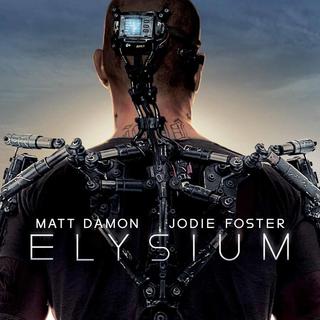
介绍:
They say "you can't teach an OLD dog new tricks", but at the tender age of 33, director Neil Blomkamp is already projecting old age into his new film "Elysium".
Blomkamp's 2009 movie "District 9" concludes with the aliens promising to return in three years. Four years later, the South African-Canadian director returns with "Elysium", older, but none the wiser. Like "District 9", "Elysium" is full of political messages, highlighting the conflict between the haves and have-nots. The only difference is, the previous film was centered on immigration, the new one on medical care.
In Blomkamp's dystopic vision of the year 2154, humans are divided between the rich and the poor. The poor struggle with insufficient resources and unemployment on earth while the rich live comfortably on a space station called Elysium where sickness is eradicated with the help of super-effective medical devices. Matt Damon is a former car thief and menial worker at an assembly line. He is exposed to a lethal dose of radiation at work and his only chance at survival lies in the medical devices on Elysium. He has no idea that his attempt to reach Elysium could cause the whole system to crumble.
Blomkamp's insight or skills only allows him to describe things as they are. In the guise of science-fiction, he vividly depicted the fate of immigrants in "District 9"; the pictures were largely filmed in South Africa. Similarly, "Elysium" is mostly photographed on the poor outskirts of Mexico City. Both films painted a striking picture of deprived groups, but neither venture deeper to disclose the root of the problem. Most notably, no explanation is given on the concentration of medical resources on Elysium. Is the disparity a result of the constant exploitation of the poor on the part of the rich? Or is the poverty on earth the result of pure negligence? In both films the director is satisfied with describing the world as he conceives it.
On the other hand, both films provide unsatisfactory endings. The aliens never returned in "District 9" and the lead character never recovered from trans-human mutation. "Elysium" simply ends with a revolution, during which the super-effective medical service is made available to all people. Revolutions can be difficult and a good story for a movie, but what follows is even more difficult. When you conceive a world where medical resources are controlled by the rich, you would naturally assume the situation is caused exactly by a shortage of such resources. If so, the act of making it available to all is hardly the end of the problem. However, our dear director seems Okay with the unrealistic, if not naïve, ending.
Neil Blomkamp was able to attract a lot of attention for the sarcasm and political message in his previous film, but if he learns no new tricks to broaden his reach, his audience will soon grow tired and go away. On a scale from one to ten, I give Elysium a five.
大家还在听

